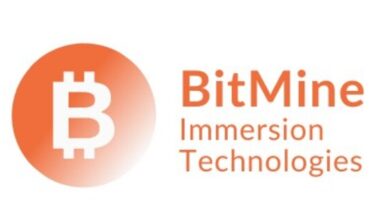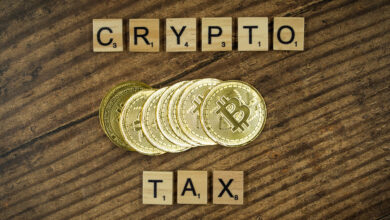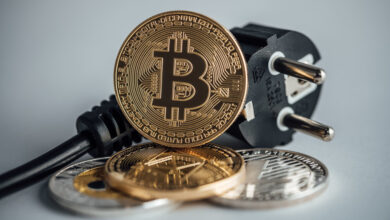Are Smart Contract Shariah Compliant.. Amanah Advisors speak..

With the rise of FinTech, we have all heard of various buzzwords and promises of revolution. One of the most common words referenced is blockchain. Another term which is beginning to gain traction is smart contracts. Whilst the actual use cases and implementation of smart contracts are still questionable and unsettled, it is no doubt another avenue of growth and a potential alternative to form transactional relationships between people is in the making. What is most interesting is to see how the Islamic Finance industry embraces such tech to accelerate growth and enter new markets.
What are smart contracts?
Smart contracts are positioned within a blockchain. As you may be aware, a blockchain is a shared, distributed ledger that facilitates the process of recording transactions and tracking assets in a network. An asset can be tangible — a house, a car, cash, land — or intangible like intellectual property, such as patents, copyrights, or branding. Virtually anything of value can be tracked and traded on a blockchain network. Blockchain enables a database to be directly and safely shared by entities who do not trust each other, without requiring a central administrator. Blockchains enable data disintermediation, and this can lead to significant savings in complexity and cost.
A smart contract is a piece of code that is stored on a blockchain, triggered by blockchain transactions and which reads and writes data in that blockchain’s database. The best way to understand smart contracts is to think of it as program functions: there are inputs, logic to process the inputs, and output. Execution of smart contracts often results in updated states. So, the smart contract can automatically execute predetermined terms and conditions when met. Smart contracts are just programmes that operate exactly as they have been assembled and coded by their developers. The code can be Pascal, Python, PHP, Java, Fortran, or even C++. The purported benefits of smart contracts are the streamlining of complex processes where several intermediaries are needed, as well as transparency, greater synergy and cost-efficiency.
Shariah considerations
Smart contracts are programs which have utility. In and of themselves, they are value-free and inherently neutral. From this perspective, the Shariah value assigned is of permissibility. The Islamic legal maxim states:
“Permissibility is the state of all things by default.” [al-ashbah Wal-Naza’ir]
Of course, there are certain exceptions to this rule in areas such as marriage, consumption and worship. However, in terms of transactions and transactional processes, the default is that all transactions are permissible by default unless there is evidence to suggest otherwise.
The specific contract considerations and sequences will vary from product to product, transaction to transaction, but it is assumed that the core contractual requirements for Shariah compliance such as offer (ijab) and acceptance (qabul) are either done prior to the entries on the blockchain or are executed via conduct through the inputs onto the blockchain. Both forms of execution are acceptable in Shariah. From this perspective, the blockchain and smart contract plays more of a clearing, settlement and delivery service. The smart contracts are somewhat of an escrow and a digital intermediary ensuring that the inputs are correct. These programs play the role of solicitors to an extent in ensuring all the inputs are accurately met; which then triggers the next output in a smart contract. This permits the settlement and ownership transfer of the underlying asset tokenised into the blockchain.
If the smart contract is a digital facilitator for the clearing, settlement and delivery of the tokenised asset, then prior to the smart contract execution, a buyer cannot trade the tokenised asset as that violates the principle of Shariah. Transacting in something prior to taking receipt physically, constructively or digitally is not valid as the risks associated with the asset are not all vested in you. Of course, the trading before settlement is not possible on the blockchain as a person will not have the asset registered with them. However, no such trade should occur in reality beyond the digital infrastructure of the blockchain.
Smart contracts get executed by the blockchain nodes, as a result of processing transactions that are submitted by the user. Smart contracts exist to build trust with decentralization, in that multiple parties execute the same code and maintain the same state, independently. A transaction can be submitted to any node in the blockchain network, which broadcasts it to the entire network so all the nodes will see the transaction. At some point, the transaction gets processed by each individual node using the executable program in the target smart contract. If the transaction execution is successful, the internal state of the blockchain will be updated. A smart contract may also consider the input to be invalid and reject the transaction as failed, in which case the state is not affected. The Shariah considerations of processing Shariah non-compliant transactions and validating such trades needs considering. Some scholars may argue that it is not permissible to process the transaction, whilst others will see the processing as a remote service and beyond the actual impermissible elements of a transaction.
Overlooking the debate on processing the transactions, if mining is involved, the miners execute the smart contract and receive the transaction fees for this. The other full nodes validate and update their records of the ledger. Taking this into consideration, the execution, clearing and delivery can embrace the principles of Ju’alah. Ju’alah is a contract in which one of the parties (the Ja’il) offers specified compensation (the Ju’l) to anyone (the ’Amil) who will achieve a determined result in a known or unknown period.
The participation of a Muslim node as a miner to execute any non-Shariah compliant transaction is a contentious area. This can be argued to be falling within the facilitation of Shariah illegal and sinful activity. Simply updating a ledger and validating seems to be less of a Shariah risk as this is ex-post.
Smart contracts are still in their infancy where there ‘smartness’ is also being questioned and reviewed. Smart or not, the Shariah principles are applicable in all eras, for all technologies and will always remain relevant and full of guidance to ensure that the counterparties’ rights are maintained and established.





